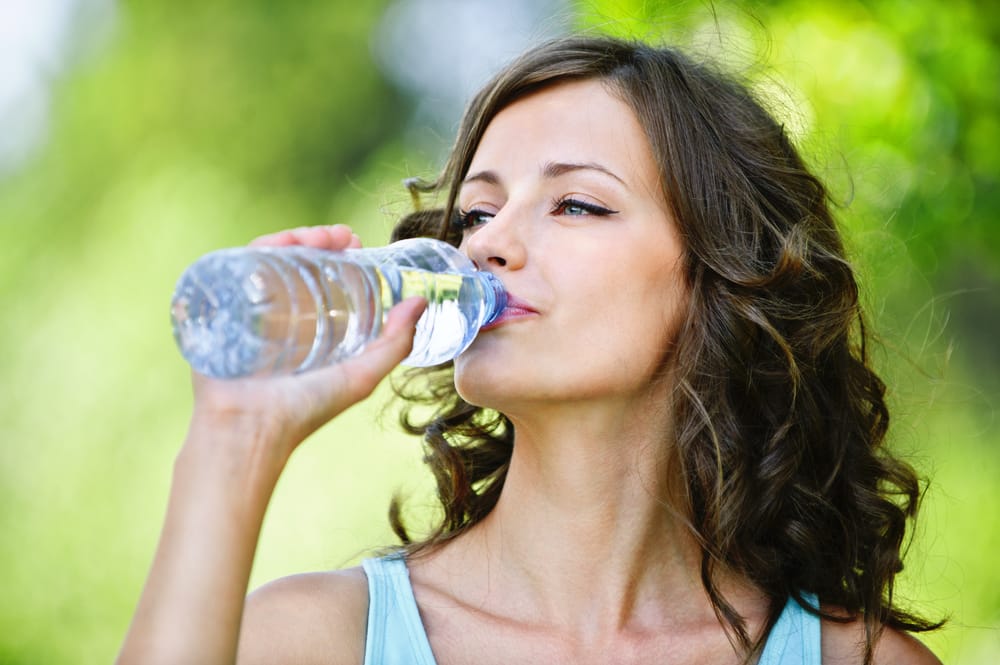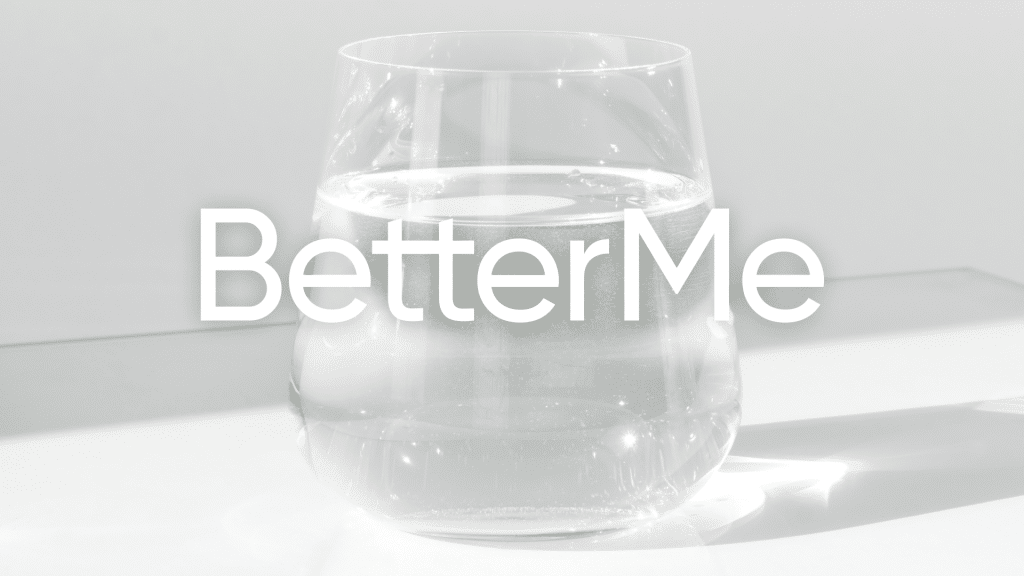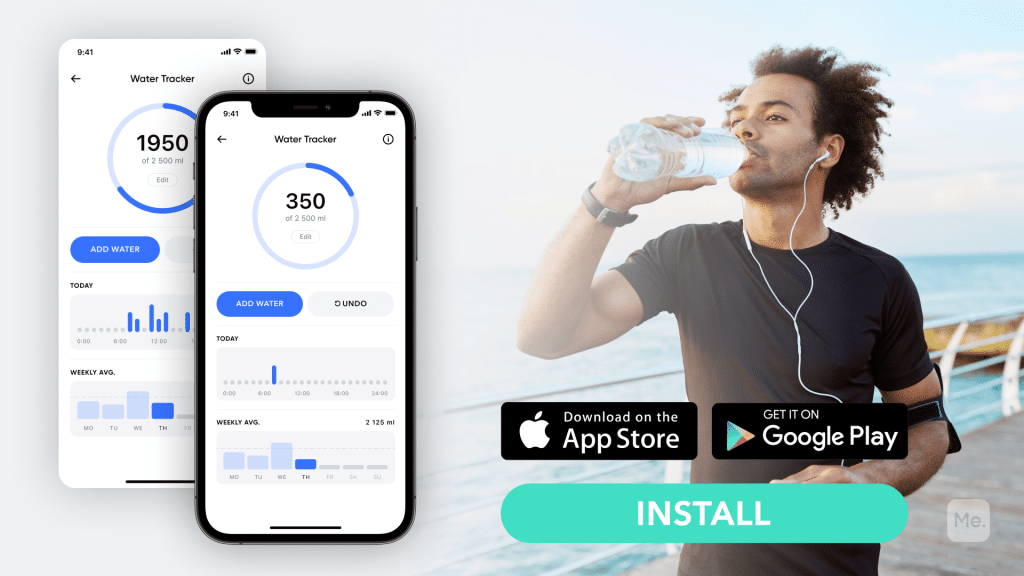Dehydration To Lose Weight
Thousands of people worldwide radically modify their lifestyles to blast away unwanted pounds. Throwing out harmful foods and sticking to a nutritious diet, those are widely proclaimed methods to melt that pesky fat once and for all. But sometimes the summer gets so close so fast, and you need to look glorious on your beach holiday. This is where the search for rapid weight loss options originates. Juice cleanses and one-product diets offering extreme calorie restriction are flooding the social media. A suggestion to stick to dehydration to lose weight seems a completely counterintuitive idea.
Get your personalized
meal plan!
Is dehydration the way to lose weight quickly? How can dehydration impact your health? Read this article to uncover the logic behind this seemingly bizarre idea.
What Is Dehydration?
Dehydration is a condition that occurs when you use or lose more fluid than you take in (2). If you’re severely dehydrated, your body doesn’t have enough fluids to function properly. Severe dehydration requires hospitalization, while more mild forms can be treated simply by increasing fluid intake.
Any person can suffer from dehydration, but this condition is particularly harmful to children and the elderly. In children, the most common cause of dehydration is severe diarrhea and vomiting, while the elderly might suffer from dehydration even because of minor infections.
Also, dehydration can happen with literally anyone if they don’t replenish fluid lost through sweat while working out or when they are ill.
Read More: Different Types Of Diets: The Lowdown On The Most Talked-About Weight Loss Strategies
Symptoms Of Dehydration:
Here is the list of side effects of dehydration on your body.
Signs of mild or moderate dehydration include the following (7):
- Thirst
- Dry or sticky mouth
- Not peeing very much
- Dark yellow pee
- Dry, cool skin
- Headache
- Muscle cramps
Signs of severe dehydration include:
- Not peeing or having very dark yellow pee
- Very dry skin
- Feeling dizzy
- Rapid heartbeat
- Rapid breathing
- Sunken eyes
- Sleepiness, lack of energy, confusion, or irritability
- Fainting
As you can see, this list is quite extensive, and dehydration is considered a medical condition requiring treatment. How could it happen that some people proposed the idea that dehydration is the only way to lose weight quickly? It might be connected to the concept of water weight.
Want to build an attention-grabbing bubble butt, blast away fat that’s stored in all the wrong places, spring-clean your diet, turn back the clock on your skin, skyrocket your self-confidence and shatter your insecurities? Check out the BetterMe app and set this plan in motion!
What Is Water Weight?
Water weight is when fluid collects in your tissues, making them swell (1). It consists of water the body retains instead of letting it go into kidneys. It is often uncomfortable and temporary; this is the exact reason why in the first week of sticking to a healthy diet you might lose a significant number of pounds: that is water weight.
Causes Of Water Weight
The most widespread causes of bloating and excess water weight are salt and carbs.
Sodium attracts water and keeps it trapped in your body. So, the more your diet is sodium-packed, the more fluid your body will retain.
Carbs can also have a remarkable impact on fluid retention, particularly if you start adding them back after a period of restricting them.
The carbohydrates we don’t use right away for energy will be stored in the body in the form of glycogen. Glycogen pulls in water, so the more glycogen you are storing, the more water you are storing with it.
Some other causes of increased water weight include menstruation and pregnancy among women, as well as certain medications and medical conditions.
Read More: How To Start Losing Weight For Beginners: All Facts, No Fluff
How To Get Rid Of Water Weight?
If the weight is called water weight then you need to stop drinking water to lose it, right? This may sound logical, but in fact, is a potentially disastrous mistake.
What you need to flush out water weight (that is not caused by a medication or medical condition) is cutting down on salt and carbs and drinking MORE fluids.
As mentioned before, salty foods and foods high in carbs tend to increase water weight. This, once again a bit counter-intuitively, does not mean that you should stop adding a pinch of salt to your dishes and suffer trying to shove plain, tasteless food down your throat. By contrast, what you really need to do is exclude processed foods from your menu. The majority of your salt intake is likely to come from those; simply because manufacturers use salt as a preservative, so the product stays on the shelf longer.
Secondly, you need to drink more water.
According to the National Research Council, the recommended daily intake of fluids, including dishes, foods, and drinks containing liquid like juice, tea, coffee, watermelon, soup, is the following (3):
- Adult men – 3700 ml (about 123 fl oz) per day
- Adult women – 2700 ml (about 90 fl oz) per day
If your body feels extremely thirsty, it will hold on to whatever water it has. So, if you’re retaining fluids, make sure you’re meeting your needs, especially if you’re also consuming salty foods.
If you are retaining water due to a medication or medical condition however, consult your doctor to discuss how to manage it before making any changes to your fluid intake.
Water has numerous benefits, including those directly affecting the weight loss process.
Benefits Of Drinking Water
The major benefits of drinking water include:
- Delivering essential nutrients to all bodily organs;
- supplying oxygen to the lungs and maintaining heart function;
- release of recycled substances;
- stabilization of the internal environment;
- maintenance of the normal body temperature; and
- helping the immune system fight diseases.
Does Drinking Water Help You Lose Weight?
In short, it does, and this is proven.
Drinking enough water increases the number of calories you burn, which is known as resting energy expenditure (6). It also can reduce appetite in middle-aged and older adults (5), which is potentially helpful for the weight loss process. It is also directly connected to reduced calorie intake if you drink water mainly instead of other beverages which are full of sugar and calories (4).
Dehydration To Lose Weight: Final Thought
To sum up, dehydration to lose weight is a horrible idea that can seriously damage your health. Water weight does exist, but its relation to dehydration is the opposite: you need to drink more, not less to get rid of it. If you are retaining water due to a medication or medical condition however, consult your doctor first. Read further to find out the best times of the day to drink water, take part in the exciting water challenge, and learn to cook delicious and full of vitamins lemon water as a refreshing morning drink.
DISCLAIMER:
This article is intended for general informational purposes only and does not address individual circumstances. It is not a substitute for professional advice or help and should not be relied on to make decisions of any kind. Any action you take upon the information presented in this article is strictly at your own risk and responsibility!
SOURCES:
- 8 Things That Can Make You Gain Water Weight (2018, health.com)
- Dehydration (n.d., mayoclinic.com)
- Drinking water and Health (1977, nap.edu)
- Plain water consumption is associated with lower intake of caloric beverage: cross-sectional study in Mexican adults with low socioeconomic status (2015, ncbi.nlm.nih.gov)
- Pre-meal water consumption reduces meal energy intake in older but not younger subjects (2007, ncbi.nlm.nih.gov)
- Water consumption increases weight loss during a hypocaloric diet intervention in middle-aged and older adults (2009, ncbi.nlm.nih.gov)
- What is Dehydration? What Causes It? (n.d., webmd.com)











